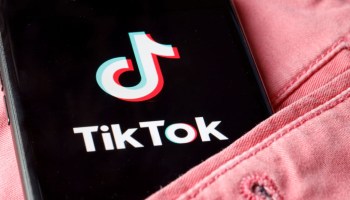Jobs in science, technology, engineering and mathematics are projected to grow by 17 percent by 2018, compared to 9.8 percent for jobs in other fields, according to estimates from the U.S. Department of Commerce.
That’s good and bad news for women and minorities, who are barely represented in one of the nation’s fastest growing job sectors.
It’s potential good news because it represents an abundance of opportunities for the American workforce, which as of 2012 was 47 percent female, 16 percent Hispanic, 2 percent Black and 12 percent Asian, according to numbers from the U.S. Bureau of Labor Statistics.
Further, the technology sector could help reduce the outsize unemployment rate among Blacks in the U.S., which was 10.7 percent in June 2014, compared with a white unemployment rate of 5.3 percent. As National Urban League president and CEO Marc H. Morial noted in an interview with NewsOne, “There is no doubt that opening the doors much wider to technology jobs and technology opportunities is, in fact, a key to dealing with unemployment and the underemployment problem in the community.”
But the bad news is that the door to jobs in the burgeoning sector has been firmly shut to Blacks and Latinos, so much so that civil rights leaders such as Morial are putting pressure on giants in the online technology industry to diversify their ranks.
Under pressure, Google released diversity numbers in May after going years without revealing the figures. An estimated 1 percent of its tech staff is Black and 2 percent Hispanic. Meanwhile, Asians make up whopping 34 percent of the company’s workforce, while 83 percent of its workers internationally are male, according to USA Today.
Given such numbers, a concerted effort by Internet giants to diversify could be game-changing for excluded minority groups, said Morial. “It could be very powerful. Google and Apple and others are creating lots of new jobs all the time. Their companies are on the upswing. There is no doubt that given the importance of the industry as a job creator, we must as civil rights organizations push to open the door wider.”
While Morial commends Google for releasing its diversity numbers, he said more work needs to be done. The next step will be for the leadership of Google to acknowledge the work ahead of them, he said. Like so many leading American companies, he added, they must map out a plan for diversity in hiring and supplier participation, as well as to align their interests with those of a very broad and diverse customer base.
“I would compliment Google for releasing the information, but I would also express a great deal of disappointment that the numbers are certainly not where they should be given Google’s importance and value as an American institution,” Morial continued. “I hope that what Google has done is going to encourage other companies in the tech world to be more transparent about all issues related to diversity, employment, supplier diversity, the composition of their boards and the philanthropy that they do. These are publicly-traded companies and publicly-traded companies owe some transparency… to the country.”
RELATED STORY: Google Report Reveals Blacks, Women At Low End Of Employee Pool
Twitter has also found itself in the crosshairs of other civil rights activists and groups, such the Rev. Jesse Jackson, Sr. and Color of Change, who are pushing the company to release the gender and ethnic breakdown of its employees. The activists are also pushing the organization to host a forum on how it plans to diversify its staff, according to USA Today.
Along with Morial, Jackson and others have been successful at getting other major Internet companies — Google, Facebook, LinkedIn and Yahoo — to release diversity numbers, revealing that the technology industry is overwhelming male, white and Asian.
Twitter, however, has remained silent, Jackson told USA Today last week. For the same report a Twitter spokesman told the paper that the company had nothing to announce “at this time.”
“It is ironic that Twitter is still resisting releasing this information,” Jackson said. “[Minorities] are over-indexed on Twitter as users, and we are under-indexed as employees.”
Twitter’s silence is perplexing, given that Blacks, Hispanics and Asian Americans account for 41 percent of U.S. users, making the platform more racially diverse than most social networks, including Facebook. Black people account for 18 percent of Twitter users, compared with 10 percent of Internet users overall, the Wall Street Journal recently reported.
So popular and powerful is it among some Blacks, that it has spawned its own name – Black Twitter. As NewsOne previously reported, Black Twitter has been credited with helping to sideline a book deal for a juror in the trial of George Zimmerman, who was acquitted of murder in the death of unarmed black teenager Trayvon Martin.
Black Twitter’s voices also “turned up the heat on celebrity cook Paula Deen, whose racial slurs inspired the #paulasbestdishes hashtag featuring recipes such as ‘Massa-Roni and Cheese’ and ‘Don’t Know Nothin’ Bout Birthin No Baby Carrots,’” USA Today reports.
No doubt diversity education is key to improving hiring practices in the tech industry and the National Urban League recently released a report, Diversity Practices That Work: The American Worker Speaks [PDF], which provides a blueprint to help prime workers for the challenge. Morial notes that the National Urban League can assist American businesses in developing the skills necessary to manage and cultivate diversity and inclusion programs.
Additionally, Morial said that Internet companies won’t need to reinvent the wheel as they diversify; in fact, there are job-training models in the telecom industry, which has worked hard to diversify its own ranks over the years.
“During my public speeches at the Minority Media and Telecommunications Council, I stress that we stand ready to work with, continue to push and encourage everyone,” he said. “If you look at telecom companies like AT&T, Verizon and Comcast, they have diverse boards, philanthropy and diverse executives. Certainly, they are not where we’d all like them to be, but they have demonstrated the power of diversity. It’s one thing to talk about Apple and Google and others, but you have to talk about those that have embraced diversity historically and have made tremendous strides, underscoring that no one is where we want them to be. But it’s a start and that’s what’s important. That’s where were need to be in the tech world.”
Lynette Holloway is a News One contributor. Follow her on Twitter.
























